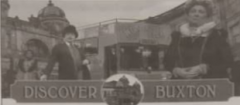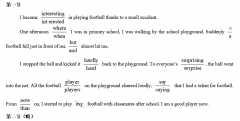2015宁夏银川一中高三第四次月考英语试题及答案
银川一中2015届高三年级第四次月考
英 语 试 卷
命题教师: 庄爱霞、马燕
第一部分:听力理解(共两节。满分30分)
做题时,先将答案标在试卷上。录音内容结束后,你将有两分钟的时间将试卷上的答案转涂到答题卡上。
第一节 (共5小题:每小题1.5分,满分7.5分) 听下面5段对话。每段对话后有一个小题,从题中所给的A、B、C三个选项中选出最佳选项,并标在试卷的相应位置。听完每段对话后,你都有10秒钟的时间来回答有关小题和阅读下一小题。每段对话仅读一遍。
例:How much is the shirt ?
A.$19.15. B.$9.18 C.$9.15 答案是C.
1. What is the man, most probably?
A. A shop assistant. B. A bank clerk. C. A travel agent
2. What do we know about the man?
A. He was about 20 minutes late.
B. He felt sad that the movie had begun.
C. He didn’t mind that the woman was late.
3. What will the speakers do?
A. Adopt a pet. B. Volunteer in an animal shelter. C. Go to a pet store.
4. When will the woman’s car be ready?
A. By 2:00 pm. B. By 3:00 pm. C. By 2:30 pm.
5. With whom will the woman spend the weekend?
A. Her grandma on her mother’s side.
B. Her grandma on her father’s side.
C. Her grandpa on her father’s side.
第二节:(共15小题;每小题1.5分,共22.5分)
听下面5段对话。每段对话后有一个小题,从题中所给的A.B.C三个选项中选出最佳选项,并标在试卷的相应位置。听完每段对话后,你都有10秒钟的时间来回答有关小题和阅读下一小题。每段对话仅读两遍。
听第六段材料,回答第6-7题。
6. Where does the woman probably work?
A. At a hotel. B. On a farm. C. At a gas station.
7. What is the last thing the man asks the woman to do?
A. Introducing him to Henry Brown.
B. Telling him how to take the short cut.
C. Telling him more about Henry Brown.
听第七段材料,回答第8--9题。
8. What is the woman doing?
A. Asking about some new words.
B. Giving the man a word quiz.
C. Asking about houses in America.
9. What kind of home does the man live in now?
A. Bungalow. B. Apartment. C. Mansion.
听第八段材料,回答第10--12题。
10. What is the man sad about?
A. Paris isn’t as good as he expected.
B. He forgot to get off the train in Paris.
C. He left his digital camera on the train.
11. Why will the woman go to the train station tomorrow?
A. To pick up a customer there.
B. To see the man off.
C. To visit her customer there.
12. When will the man go back to the US?
A. In about a week. B. In about three weeks. C. In about two weeks.
听第九段材料,回答第13--16题。
13. What has the woman seen on American TV shows?
A. 80% of Americans buy take-out food once a week.
B. Young Americans often buy take-out food.
C. Many Americans like eating in restaurants.
14. Which of the following does the man like?
A. Pizza. B. Soda. C. Hamburgers.
15. What do we know about the man’s parents?
A. They learned how to cook at ten years old.
B. They often took the man out to eat.
C. They think healthy eating is important.
16. What will the woman do tonight?
A. Treat the man. B. Cook at home. C. Eat in a restaurant.
听第十段材料,回答第17--20题。
17. Why did the speaker’s parents take her to her grandparents?
A. They thought she would study better there.
B. They wanted her to keep her grandma company.
C. Her grandma could help look after her.
18. Who usually prepared lunch?
A. The speaker’s grandpa. B. The speaker’s grandma. C. The speaker’s dad.
19. What did the speaker’s grandma do?
A. She helped a poor family.
B. She shared their food with a little boy.
C. She made lunch for a little boy.
20. What do we know about the speaker?
A. She likes helping the poor.
B. She likes encouraging others.
C. She is twenty years old now.
第二部分:阅读理解(共两节,满分40分 )
- 第一节(共15小题;每小题2分,满分30分)
A
“Don't worry if you have problems!” It is easy to say until you are in the midst of a really big one. The only people who don't have troubles are gathered in little neighborhoods. Most communities have at least one. We call them cemeteries. If you're breathing, you have difficulties. It's the way of life. And believe it or not, most of your problems may actually be good for you! Let me explain.
Maybe you have heard the Great Barrier Reef, stretching some 1,800 miles from New Guinea to Australia. Tour guides regularly take visitors to view the reef.
On one tour, a traveler asked the guide an interesting question. "I notice that the lagoon (泻湖) side of the reef looks pale and lifeless, while the ocean side is vibrant and colorful," the traveler observed. Why is this?
The guide gave an interesting answer, "The coral around the lagoon side is in still water, with no challenge for its survival. It dies early. The coral on the ocean side is constantly being tested by wind, waves and storms. It has to fight for its survival every day. As it is challenged and tested, it changes and adapts. It grows healthy. It grows strong. And it reproduces."





